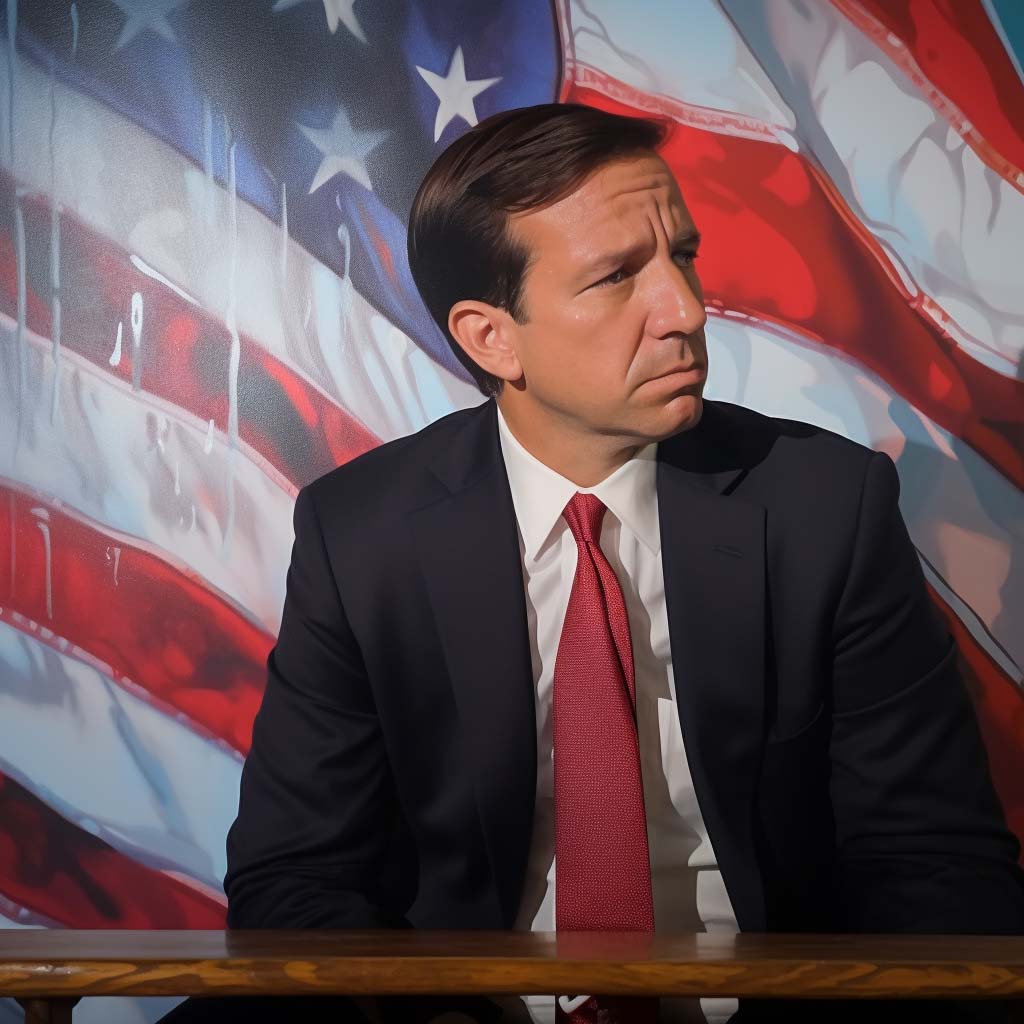In the not-so-distant past, Ron DeSantis was hailed as the Republican Party’s brightest star, the man who could challenge Donald Trump’s dominance within the GOP and lead the party to victory in the 2024 presidential race. After a convincing re-election as Florida’s governor, DeSantis held a 5-point lead over Trump among potential primary voters, and his reputation as the next big thing in Republican politics seemed well-founded. However, the last two months have been nothing short of a disaster for DeSantis’ campaign, leading to a desperate reboot and an uphill battle to salvage his presidential ambitions.
The decline of DeSantis’ campaign can be attributed to a series of missteps and strategic blunders. As polls showed Trump gaining more support among rank-and-file Republicans, DeSantis’ official campaign launch, a Twitter Spaces event with Elon Musk, failed to generate the desired excitement and momentum. Since then, Trump has consistently held more than 50% of the primary vote, while DeSantis now trails him by more than 30 points.
One of the critical factors undermining DeSantis’ candidacy has been his campaign’s financial mismanagement. Reports revealed lavish spending on luxury hotels and private jets, combined with zero investment in television ads. The extravagant expenses and lack of strategic advertising raised concerns among donors and supporters, leading to a dwindling campaign team and an exodus of staff.
Moreover, DeSantis’ messaging has proven problematic. A video that sought to criticize Trump’s stance on LGBTQ rights backfired, triggering widespread backlash and alienating a portion of the conservative base. The campaign’s lack of a clear and consistent message, coupled with a failure to differentiate himself from Trump on important issues, further contributed to the diminishing appeal of the Florida governor.
While DeSantis might be viewed as the most viable alternative to Trump among potential GOP candidates, he still struggles to rally broad support. Many Republicans are reluctant to renominate Trump in 2024, but finding a suitable replacement remains a challenge. DeSantis’ failure to capitalize on this anti-Trump sentiment and position himself as the more electable choice has hindered his ability to win over a significant portion of the party.
Looking ahead, the path for DeSantis remains murky. The first GOP debate in Milwaukee on August 23 might provide an opportunity for the campaign to change the race’s dynamic. However, the most significant factor that will shape DeSantis’ fate is Trump himself. If the former president faces more legal troubles or a significant collapse in support, DeSantis hopes to capitalize on the situation. Yet, there’s no guarantee that such a scenario will occur or that the GOP will unite around the Florida governor even if it does.
In an attempt to salvage his candidacy, DeSantis’ advisers plan to reset the campaign as an “insurgent” run, emphasizing a “leaner-meaner” operation that engages more with the press and focuses on Iowa, the first caucus state. However, this strategy raises make-or-break questions for DeSantis: Can he revitalize his campaign and win over the skeptical Republicans who seek an alternative to Trump? Or is it already too late for him to make a significant impact on the race?
One of the main obstacles DeSantis faces is himself. His lack of charisma and perceived off-putting demeanor have solidified a narrative of aloofness around him, much like Ted Cruz, which is difficult to shake off. Furthermore, he seems to be doubling down on emphasizing his extremism, rather than highlighting his electability, which is a critical misstep. DeSantis needs to find a way to appeal to a broader base of voters who value pragmatism and flexibility in defeating the Democrats.
Despite the uphill battle, there still exists a plausible — if unlikely — path to the nomination for DeSantis. He needs to invest in grassroots infrastructure, capitalize on the backing of influential figures like Iowa’s popular GOP governor Kim Reynolds, and appeal to conservative evangelicals. His strategy should not solely focus on criticizing Trump from the right but rather on presenting a compelling vision that sets him apart as a viable and electable alternative.
Ultimately, the road to the GOP nomination runs straight through Iowa, and DeSantis must navigate this crucial state with skill and finesse. However, no matter the strategies employed, nothing will change until DeSantis confronts Trump directly. Any fight against the former president must happen within the Republican tent, where DeSantis can assert himself and present a convincing case for his candidacy.
In conclusion, Ron DeSantis’ struggling campaign faces significant challenges and needs a substantial turnaround to regain momentum and compete effectively against Donald Trump. Only time will tell if DeSantis can reposition himself and prove his viability as the GOP’s alternative choice or if the dream of becoming the Republican nominee is slipping away. As the 2024 election cycle unfolds, all eyes will be on how DeSantis tackles these obstacles and whether he can rise to the occasion.


